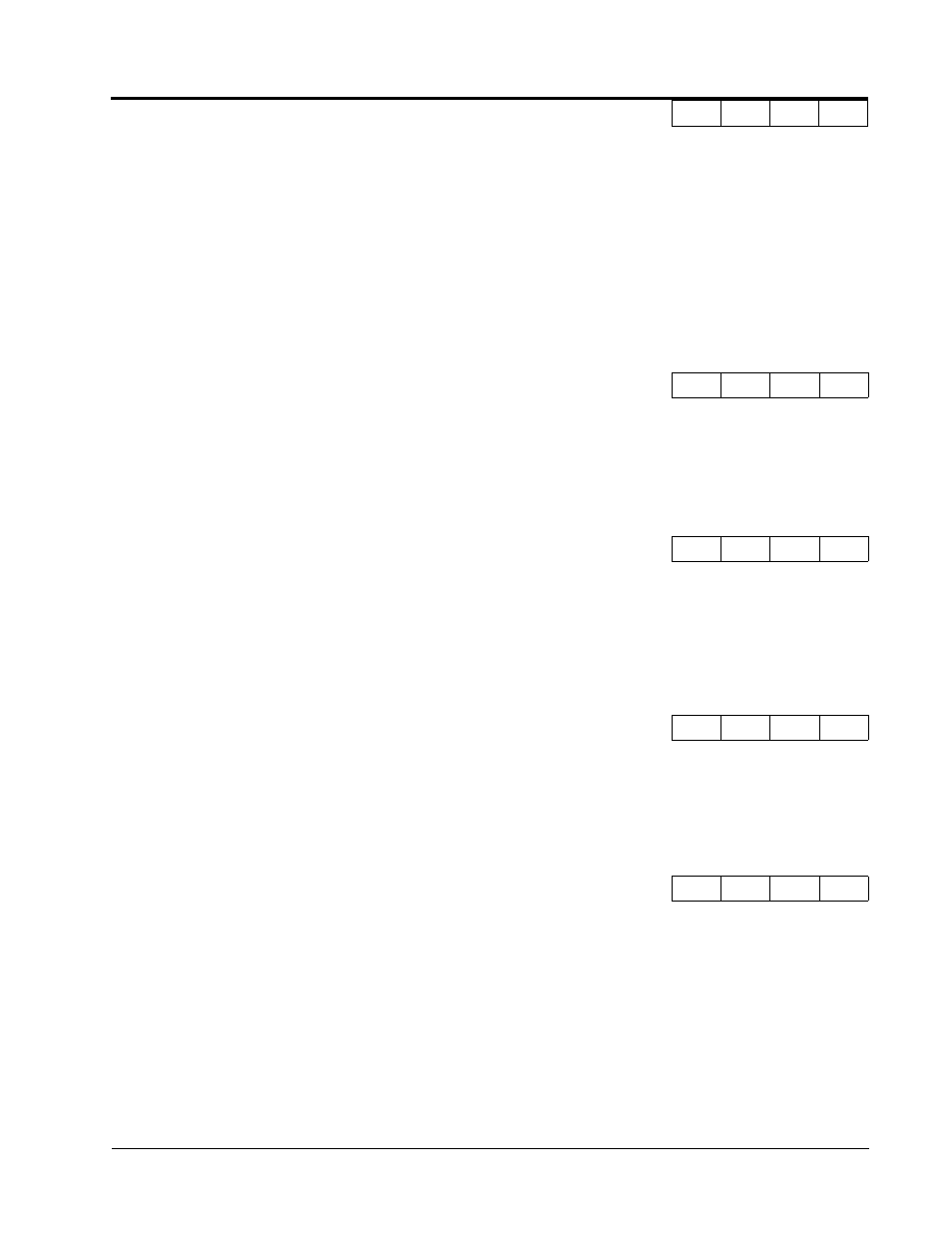Yaskawa VS-616G5 Series Revision F Programming Manual User Manual
Page 23

VS-616G5 Programming Manual
23
V/f
V/f w/PG Open Loop
Vector
Flux
Vector
Notes:
1. I value is reset to ”0” when operation stops.
2. The upper limit of the I value can be set by parameter B5-04.
Increase the value of parameter B5-04 to upgrade control capability by integration. If the control
system vibrates and it cannot be stopped by adjusting the integral time, output delay time, etc.,
decrease the set value of parameter B5-04.
3. PID control can be canceled by a multi-function contact input signal.
By setting any of parameters H1-01 to H1-06 to “19” and by closing the contact during running,
PID control is disabled and the intended value signal itself is used as a frequency reference signal.
Setting Range:
0.00 to 25.00
Factory Default:
1.00
The proportional gain is the value by which the deviation signal is multiplied to generate a new fre-
quency reference.
Setting Range:
0.00 to 360.0 seconds
Factory Default:
1.00 seconds
The integral calculation sums the deviation over time, which eliminates the offset, thus achieving the
intended value. The integral time determines how quickly the integral gain increase is added to the
control loop.
Setting Range:
0.0 to 100.0%
Factory Default:
100.0%
The integral limit value eliminates oscillations and improves stability. This value is set as a percentage
of maximum output frequency (E1-04).
Setting Range:
0.00 to 10.00 seconds
Factory Default:
0.00 seconds
The derivative calculation attempts to control the remaining overshoot left over after the proportion
and integral calculations. If the system is approaching the intended value very rapidly, the derivative
control produces a strong braking action to prevent overshoot. If the system is already stable with very
little deviation change, derivative control has very little effect. The derivative time is used to dampen
oscillations and reduce overshoot, thus improving stability. Setting the derivative time to a larger num-
ber produces more braking action in the control system.
B5-02 PID Control Proportional Gain
PID Gain
A
A
A
A
B5-03 PID Control Integral Time
PID I Time
A
A
A
A
B5-04 PID Control Integral Limit
PID I Limit
A
A
A
A
B5-05 PID Control Derivative Time
PID D Time
A
A
A
A
Section B: Application Parameters
B5 PID Control